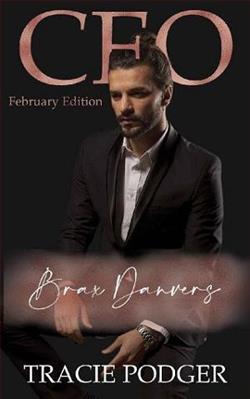Page 19 of Oliver
My pulse kicked up as I pulled our contract up on my phone, scrolling straight to the emergency contact information. The black-and-white text blurred slightly as I stared at it, a silent battle waging in my head.
But I was already moving. Already sliding into my car with his address memorized.
This was not what professionals did. Professionals waited. Professionals assumed the best. Professionals didn’t drive across the city for a man who wasjusta contract. A job. A precise, controlled agreement.
I tightened the grip on my phone. This wasn’t control. This was a deviation.
Oliver would hate this.
My finger hovered over the navigation icon.
Maybe I was overreacting. Maybe I was turning this into something bigger than it was.
Maybe I should wait another fifteen minutes.
But my gut was screaming. This wasn’t just a missed text or a belated arrival. This was Oliver—the most predictably structured man on the planet—breaking his own unspoken law of punctuality.
I swallowed hard. He wouldn't just not show up. Not unless he physically couldn’t.
I buckled in and started the engine.
I shouldn’t do this. Shouldn't drive to his apartment. Shouldn't cross this line.
But not knowing was worse.
I exhaled, pressing the call button and gripping the steering wheel tighter when it rang through to voicemail again. I threw the car into drive and peeled away from the curb, a whisper of guilt snaking up my spine.
Within twenty minutes, I was parked outside a modest brick building in Capitol Hill, still trying to convince myself I wasn’t crossing a line.
The faded green door was chipped at the frame, and I exhaled sharply before buzzing Oliver’s apartment number. No answer. I tried again, my worry spiking into urgency, then pressed all his neighbors’ buttons until someone buzzed me in.
I climbed the stairs to his third-floor unit, my heels clicking against the worn linoleum until I was standing outside his apartment door.
Suddenly, the whole ordeal felt foolish. What if he was fine? What if he simply didn't want to see me, and I was about to come across as completely unhinged?
I knocked lightly. Then harder. Was he ignoring me? That’s when I heard a deep, wracking cough from inside the apartment.
Shit. It was loud and violent, and I lost all sense of boundaries.
“Oliver?” I called, pushing the door open before I could second-guess myself. Unlocked. Not like him.
The scent of stale coffee lingered in the small but meticulous apartment. I studied it as I inched toward an unaware Oliver, sitting on the couch with his laptop on his knees.
Each object was placed with a kind of deliberate precision that screamedOliver. No clutter, no excess, just function and familiarity.
His bookshelves were packed tight with what an outsider might call obsession, but I knew was pure passion—Astrophysics for People in a Hurry,Quantum Mechanics Demystified, and a dog-eared copy ofPale Blue Dotsat stacked on the coffee table. A framed black-and-white sketch of the Milky Way hung above his desk, not a print, but his own work.
Of course. Oliver didn’t just admire the universe—he lived and breathed it. The cosmos poured out of him in a way the rest of us couldn’t comprehend. It was breathtaking and heartbreaking. It wasOliver.
Then, I noticed an old tin box on top of the bookshelf. It was slightly rusted, the brand image long faded, and I immediately recognized it. Oliver had kept it throughout his childhood, filling it with meteorite fragments, ticket stubs, small things that mattered. I used to tease him about it, calling it his personal black hole.
He still had it.
It should have been comforting. This was Oliver’s space, where everything had a place, where chaos didn’t exist.
Except chaosdidexist, greeting me as I rounded the couch.
A crumpled blanket lay at Oliver’s feet, a half-filled cup of cold coffee next to a toppled over-the-counter cold medicine. A stack of grading rubrics, each with his clipped, efficient handwriting in the margins, and next to them were shiny star stickers, the kind professors left on standout papers.















